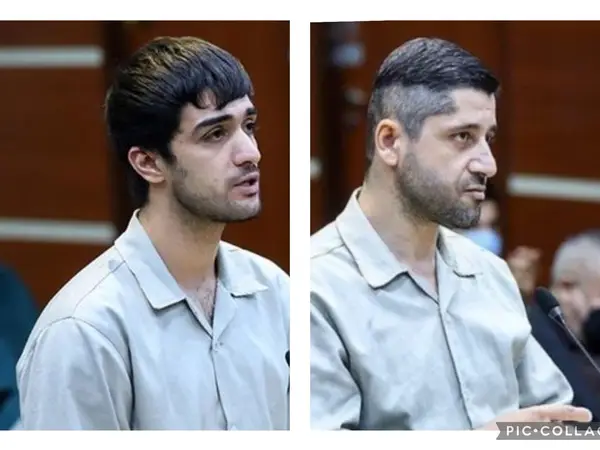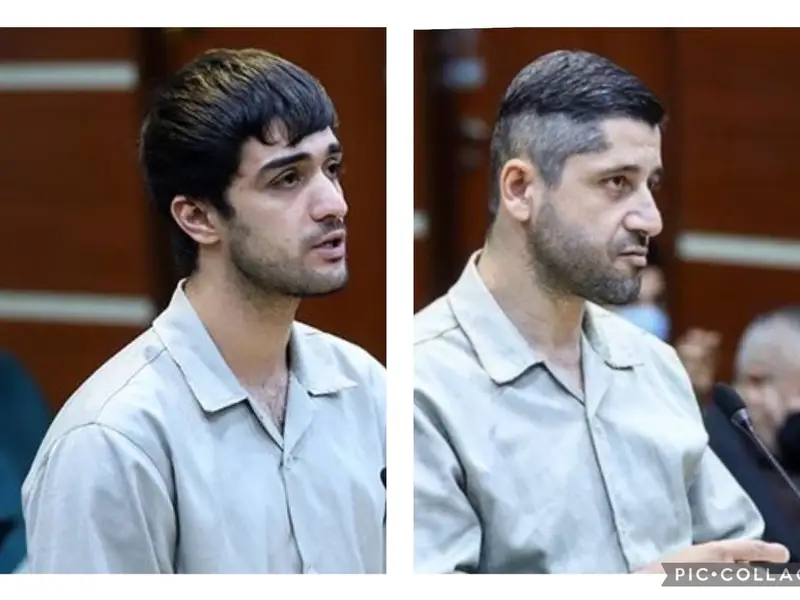The clerical regime in Iran hanged two men on Saturday for allegedly killing a Basij agent during antigovernment protests near the capital Tehran in October.
"Mohammad Mehdi Karami and Seyyed Mohammad Hosseini, main perpetrators of the crime that led to the unjust martyrdom of Ruhollah Ajamian were hanged this morning," the judiciary said in a statement carried by the official IRNA news agency.
Karami was 22 years old, and Hosseini 39 were tried without having access to attorneys of their choosing, as almost all other dissidents and protesters arrested during the demonstrations. The circumstances related to the killing of Ajamian are not clear, as often the Basij paramilitary forces take the lead to attack protesters and use deadly force.
The convictions were not based on a criminal charge related to the murder per se, but they were charged with ‘moharebeh’, meaning “war against God”, a vague religious concept. The Islamic Republic applies the charge to people who might get into a confrontation with security forces during protests.
“I met with Seyed-Mohammad Hosseini at Karaj Prison. He cried through his account of tortures, being beaten with tied hands and legs and blindfolded, to being kicked in the head and losing consciousness, the soles of his feet being beaten with an iron rod to being tased in different parts of the body,” Ali Sharifzadeh Ardakani who says he has just recently been allowed to represent Hosseini tweeted on December 18.
Despite widespread international attempts to stop the executions, the regime decided to implement the verdict reached in November. Officials say death sentences for three others in the same case have been canceled.
So far, the government has executed four protesters and eleven others have received the death penalty, some for much less charges than murder, while at least 100 protesters face charges that could end in death sentences for them, an Iranian human rights group based in Oslo has reported.
The first two hangings triggered strong international condemnations and hundreds of lawmakers in Europe and Australia began sponsoring Iranian detainees in danger of execution to generate publicity and impact their fate.
French lawmaker Aude Luquet had taken on Hosseini’s political sponsorship and called for an immediate halt to all executions in Iran. Hosseini is also sponsored by Austrian parliamentarian Harold Truch.
Mohammad-Mehdi Karami was sponsored by Helge Limburg, member of the German parliament. “The regime in Iran assumes that he was involved in a killing. In truth he should die because he stands up for democracy and human rights. His execution would be a judicial killing,” Limburg tweeted December 12.
Activists had earlier called for protests in Iran and abroad on Sunday, January 8, the third anniversary of the downing of a Ukrainian airliner over Tehran by the Revolutionary Guard that killed all 176 people onboard. The executions on Saturday will add fuel to people's anger and big protests can take place as early as today.
Dozens of prisoners are either on hunger strike or suffer from life-threatening illnesses that are not treated by prison authorities and some are deprived of life-saving medications.

